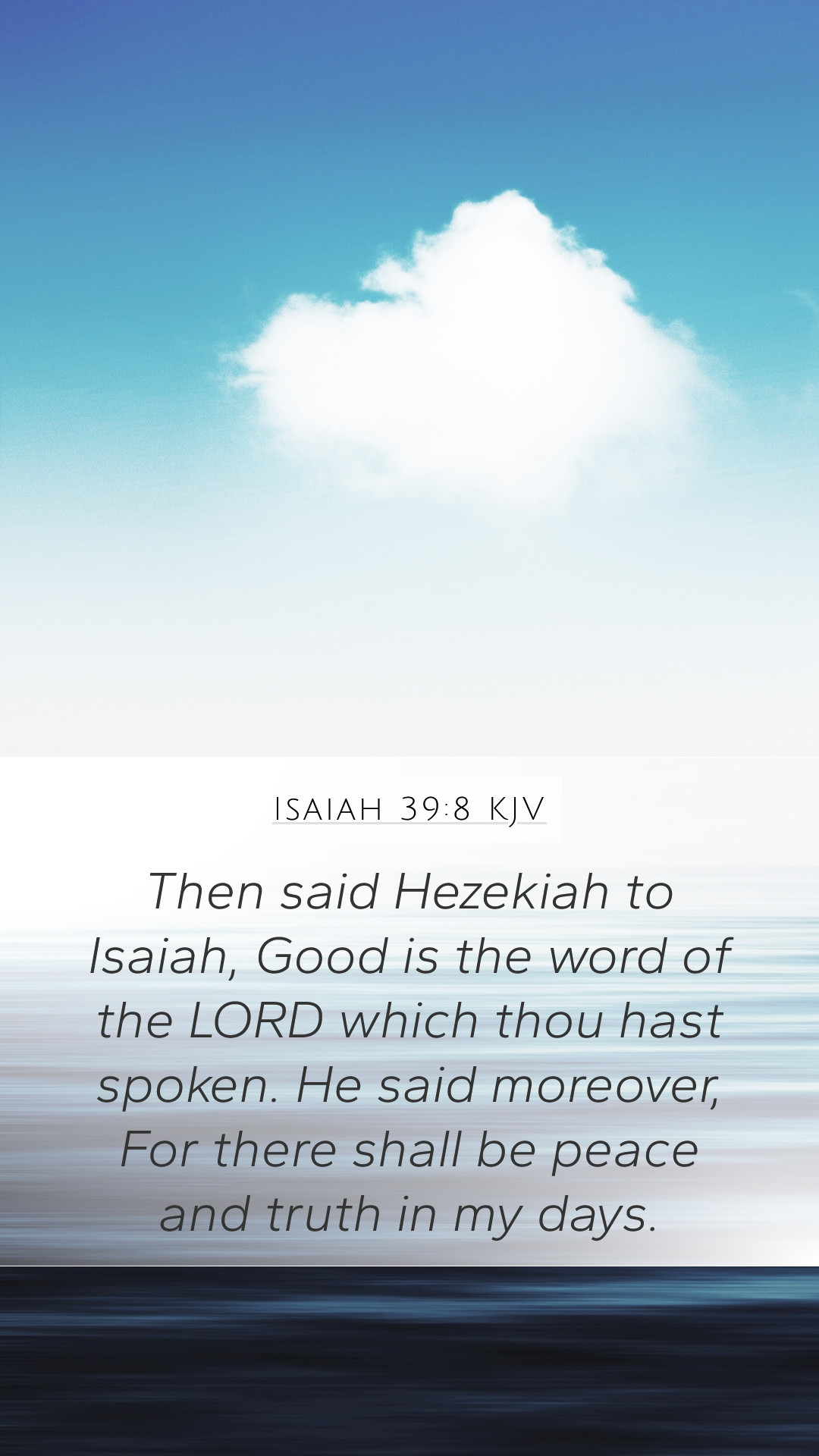Isaiah 39:8 - Meaning and Interpretation
In Isaiah 39:8, King Hezekiah responds to the messengers from Babylon with a statement that reveals much about his character and the historical context of the passage. This verse reads: "Then said Hezekiah to Isaiah, Good is the word of the Lord which thou hast spoken. He said moreover, For there shall be peace and truth in my days."
Understanding the significance of this verse requires us to delve into various layers of interpretation and commentary provided by scholars and theologians throughout history.
Bible Verse Context
This verse falls within the broader narrative of Hezekiah's reign, particularly during a time of impending judgment upon Judah due to their disobedience to God. Critical moments in Hezekiah's story demonstrate his faith and reliance on the Lord, especially when faced with threats from Assyria.
Historical Context
Hezekiah's dealings with Babylon set the stage for future consequences. He shows a mixture of humility and pride, acknowledging the goodness of God's word but also revealing a self-centered desire for peace during his lifetime rather than considering the long-term implications for his people. In understanding Scripture, it’s essential to analyze the historical threats and consequences that Judah faced during this period.
Insights from Commentaries
- Matthew Henry's Commentary: Henry notes that Hezekiah's acknowledgment of God's word reflects a commendable faith but critiques his lack of foresight regarding the future of Judah. He emphasizes that true kingship involves caring for one’s people beyond personal peace.
- Albert Barnes' Notes: Barnes elaborates on the significance of Hezekiah's peace and truth declaration, stressing that his response to Isaiah hints at the prophetic revelations regarding Babylon, which Hezekiah seems to overlook. Barnes explains that this verse highlights a moment of introspection where Hezekiah appreciates God's word but ultimately prioritizes his own welfare.
- Adam Clarke's Commentary: Clarke provides insight into the Hebrew terms used in this verse, explaining that the "goodness" Hezekiah recognizes is not just about the immediate peace but extends to God's overall plan for his people. He critiques Hezekiah for his self-interested view that lacks concern for the generations to come.
Key Themes and Applications
This verse invites readers to reflect on several key themes:
- Leadership Responsibility: Leaders must consider the impact of their decisions on future generations. Hezekiah's shortsightedness serves as a cautionary example.
- Faith in Uncertain Times: Hezekiah's faith during threats from Babylon encourages believers to maintain trust in God's word amidst challenges.
- God's Sovereignty: This passage emphasizes God's control over nations and His plans that transcend human understanding.
Conclusion
In summary, Isaiah 39:8 provides a rich tapestry for biblical exegesis and deeper understanding of character, leadership, and divine sovereignty. By analyzing the insights from various commentaries, we can gain a comprehensive view of its implications, reminding us to apply spiritual wisdom in our own lives.
Related Cross References
- 2 Kings 20:12-19
- 2 Chronicles 32:31
- Isaiah 38:5-6


